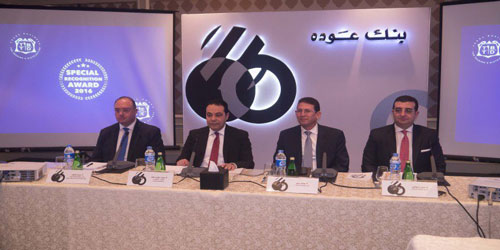Bank Audi Egypt is planning to increase the size of its loans portfolio by EGP 4.5bn by the end of 2017, according to Mohamed Fayed, deputy chairperson and managing director of the bank.
Fayed told Daily News Egypt that the amount planned to be injected to the bank’s loans portfolio will include EGP 2bn to be allocated to small and medium-sized enterprises (SMEs).
He added that the financing ratio directed to these projects registered 6% of the bank’s total loans portfolio, compared to only 1% in 2015.
Fayed added that they target to increase it to 20% in 2019, in line with the initiative launched by the Central Bank of Egypt (CBE) to support these projects.
Fayed pointed out that the amendment conducted by the CBE to the definition of such projects after the flotation of the pound helped the bank greatly to achieve its targets in financing these projects, especially as it believes in the SMEs’ importance on one hand, and the saturation of the major companies on the other.
Audi Bank Egypt has revealed on Monday its business results indicators during 2016.
The bank held a press conference attended by Mohamed Fayed; Mohamed Bedeir, deputy managing director; Mohamed Latif, head of institutions and Islamic banking and marketing; and Mohamed Shawky, head of the financial sector at the bank.
The business results of the bank registered a net profit—after a tax deduction—of EGP 1.883bn by the end of 2016, compared to EGP 586m by the end of December 2015.
Fayed said that after excluding the impact of the liberation of the dollar exchange rate, the net profit will be EGP 734m, an increase of 40% from 2015, despite allocating EGP 272m to deal with the non-performing loans.
The total deposits of customers registered EGP 45.5bn by the end of 2016, and reached EGP 39.4bn after excluding the impact of the exchange price by a real increase of 23% compared to 2015.
Fayed revealed that the bank has achieved a 30% growth in its loans portfolio during 2016, to record EGP 30.3bn. He added that the corporate sector accounts for 84% of the total of that portfolio, while individuals or retail banking sector make up 16%.
In terms of the classification of loans granted to companies, Fayed said that large companies make up 74% of the total loans, SMEs account for 6%, Islamic finance for 2%, and the rest are loans provided with cash guarantees for various activities.


